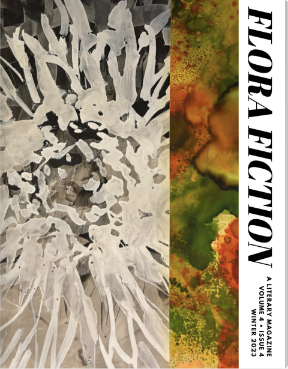Their first real conversation about death, Susan remembers, was on her sixty-fifth birthday, when they were both in ebullient good health. “Let’s be realistic,” Charlie ha d said. “Sooner or later, everyone dies. Later, we hope. But when it comes, let’s not prolong it.”
d said. “Sooner or later, everyone dies. Later, we hope. But when it comes, let’s not prolong it.”
Imagine! That was twenty-three years ago! They’d agreed in a vague way, the way they might have agreed that if a flood came they should seek higher ground. And then went on to wonderful retirement years. Remembrances of those years flooded in; she smiled across the living room at him, tipped back in his recliner.
She’d been dubious when he decided at age 75 to grow a beard, but in time grew fond of it, snow-white and neatly trimmed. “More on my chin than my forehead,” he liked to joke. She is tempted to get up and plant a kiss on that forehead, but it is easier to stay put, cozied by her fleecy lap robe. The remnants of the cup of tea at her elbow were long gone cold.
A few years ago, the state doctors’ association invited people to get their physician’s approval to write, send a check, and get a ‘DO NOT RESUSCITATE’ bracelet. Charlie embraced that idea with his characteristic enthusiasm. She fingers hers now, a shiny thin chain that might almost be cosmetic on a wrist that has grown thin.
A few years before that, someone began a movement to let terminally-ill people end their lives with lethal medication. Prescribed by a doctor, but self-administered so no one would think spouses were just getting rid of worn-out partners. It was Charlie’s idea to send some money to the organization, called Death with Dignity. She and he sent identical letters to their state legislator urging a permissive state law.
Sent those darned letters every year since, in fact, and our state still hasn’t passed the needed law. A decade ago, when they were still up to going out at night, she recalls, they attended a campaign rally for their state legislator. Charlie had shouldered his way through the crowd to tell the man, face-to-face, that it was a good law and he ought to vote for it.
Didn’t do any good: The man voted against it next time it came up. So at election time, Charlie insisted that they vote for his opponent, even though that fellow had no chance of winning.
That was her darling, tell-em-like-it-is husband, she thinks: Never hesitant to get out in front for a good idea. When legalization of marijuana came up two years ago, he embraced that, too. “I’ve never had even a toke,” he told friends, “and don’t expect to. But if someone wants pot instead of my bourbon, that ought to be a choice.”
She hadn’t disagreed, but hadn’t joined him at the ramparts on either issue. She’d been the town librarian, and having a public opinion on controversial topics would just bring out the crazies. It was bad enough having grown people combing through the children’s section looking for any mention of human bodies or body parts that they insisted might corrupt the minds of innocent children.
She’s retired now, of course, but still goes to the library now and then to help out on a volunteer basis, so still maintains her silence. Or maybe she’s just reticent by nature. “My sweet little mouse,” Charlie called her once.
Not that their elder lives have been stuck in the grooves of defending libraries’ independence or espousing unpopular issues. Charlie, a few years older, retired before she did, and when she gave it up too they traveled to all the exotic places they’d dreamed of. The kids worried about them at first, but then decided to relax and let their parents enjoy themselves.
They had indeed, tapering off to a river cruise or so when their legs balked at more ambitious adventures. She remembers floating the Mississippi in a drouth year when the river banks seemed too high, and he expounded on the dynamics of rivers.
She smiles across the living room at him again. Dear man! His mouth is only slightly ajar, what could almost have been a grin as he met the stroke or whatever it had been. And his eyes are closed, thank goodness! Otherwise she would have to get up and close them, not wanting to remember him staring blankly at the ceiling.
She’ll wait a little longer before calling security, long enough that they’ll know right away that it’s over, and won’t try any urgent restorative stuff. But they may ask why she didn’t call earlier. We were both napping, she’ll tell them.
Then she’ll phone the kids, and begin making all the necessary arrangements. It will be hard, the next few weeks, and lonely for a long time to come; she’ll cry.
But not now. Her dear husband of sixty-odd years has died with dignity. May she be so lucky, she thinks, when her time comes.
-End-





